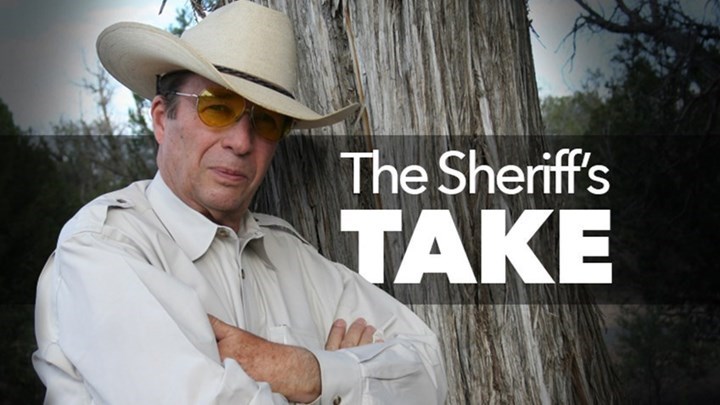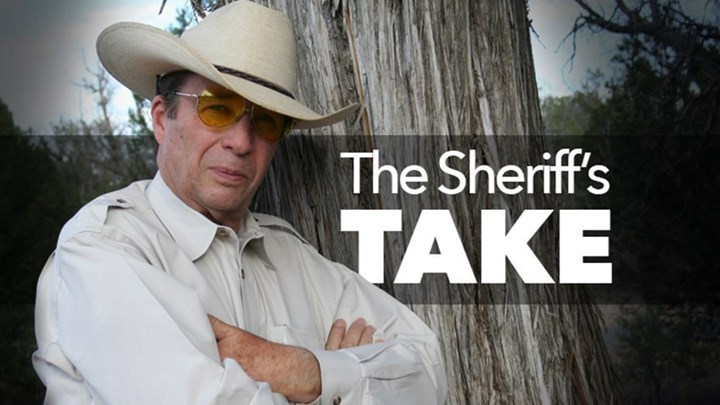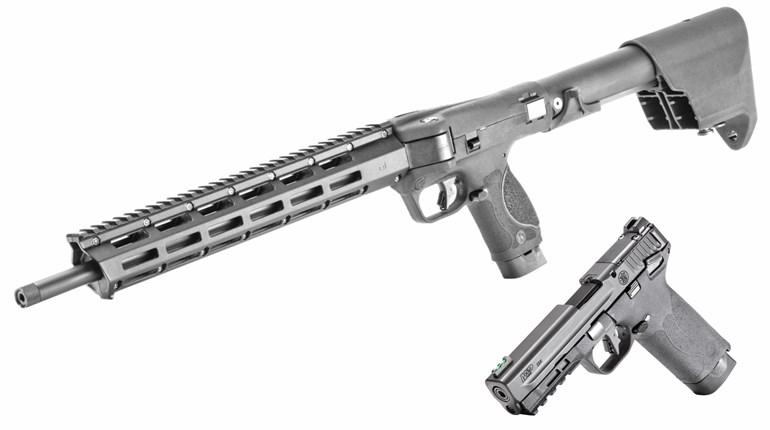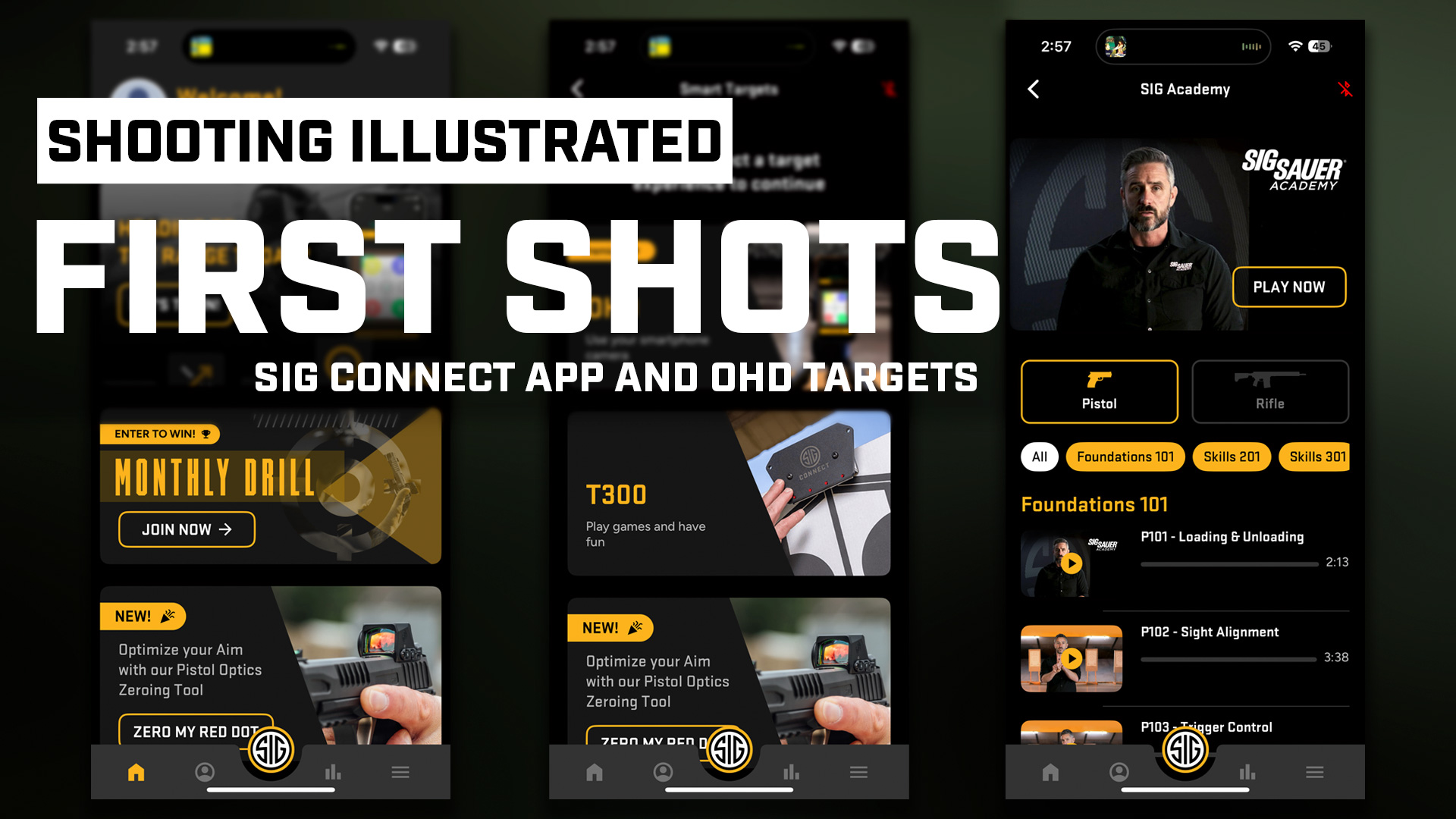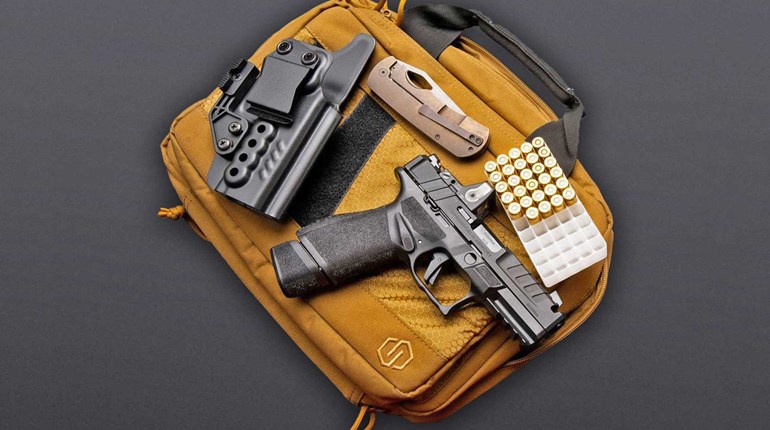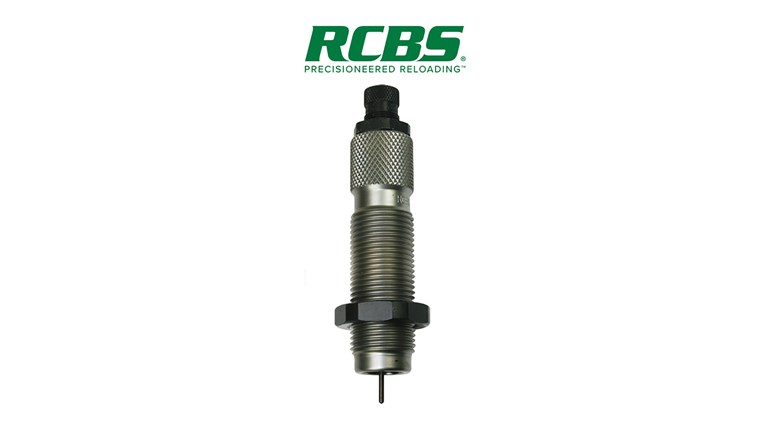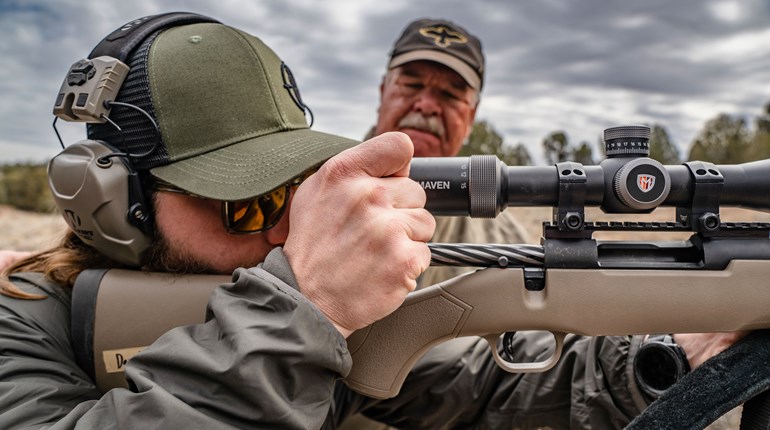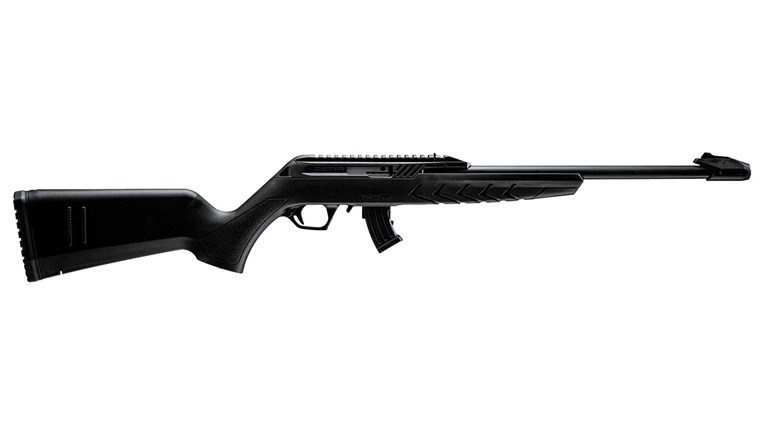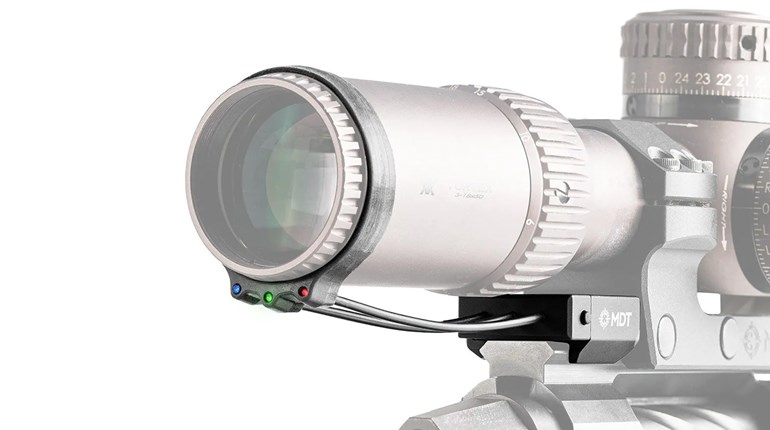
It's 42 degrees outside and spitting rain from a low, gray January sky. The weatherman says there's one of those polar vortex things headed our way and all this mess will turn to ice and then snow overnight. Guess who won't be going to any outdoor ranges for a week or two?
Unless one is blessed with a local indoor range with permissive rules, this time of year means that a lot of one's trigger time is going to come in the form of dry-fire, at least when it comes to working from the holster, transitions, getting shots off quickly when moving into positions, et cetera.
Sure, there are ways to get closer: I've seen some pretty elaborate basement ranges for airsoft guns or CO2 pellet pistols, but even the best gas guns or pellet pistols only closely approximate the actual feel and trigger of one's carry handgun.
There is also the option of Next Level Training's brilliant SIRT dummy guns with built-in lasers, but these are only available in a Glock replica at the moment (well, I'll also add that any double-action revolver with Crimson Trace Lasergrips ships with a “free laser dry-fire trainer”.) This solution has its own drawback, in that it can encourage the shooter to watch their target to see where the laser beam is hitting rather than concentrating on their sight picture. You sure don't want your dry practice to ingrain the bad habit of “prairie dogging”, or popping your head up and looking over the sights as the trigger breaks.
This is where the Smokeless Range system from Laser Ammo comes in. It solves multiple problems in one neat package. Unlike airsoft, CO2 pellet guns, or SIRT trainers, the Laser Ammo system uses your actual carry gun. The heft, sight picture, and trigger pull are unchanged.

Further, what separates the Laser Ammo system from conventional laser practice is that the targets, projected on the wall or on a TV or computer screen, are truly reactive, just like the ones at your favorite outdoor shooting range that is currently under a foot of snow.
The basic Smokeless Range software includes basic target setups that simulate fixed B27-style targets on an indoor range, targets that let you practice transitions or test your reaction times, and fun games like dueling trees or cans or clay pigeons thrown into the air that you have to hit on the fly.
Adapters are available for the basic laser module, which fits in the chamber of your for-sure-unloaded firearm to allow it to be used in a host of popular calibers. The test package came with 9 mm, .40 S&W, .45 ACP and 5.56 NATO adapters.
The Smokeless Range system works by setting up the included camera on its tripod facing the target area and calibrating it. The reactive target area is probably the greatest strength and the greatest weakness of the system. Ideally, you have a good projector with a 1280x720 pixel resolution and a 2,000-lumen output. Hook this up to the computer running the Smokeless Range software and you are going to have a ball.
The second best option is a big TV. In this era of 40-inch+ flat-panel HD televisions, it shouldn't be too hard to source a screen big enough to make this work.
The laser module is attached to the caliber-specific adapter and, in the case of pistols, a “light pipe” with an attached red plastic flange on the muzzle end is inserted in the barrel of the (unloaded) firearm and threaded into the laser module. If one is using a striker-fired weapon, the slide can be cycled enough to reset the trigger mechanism without worrying about extracting the laser module since it doesn't have a rim for the extractor claw to catch. Still, though, I used a Smith & Wesson CS9 traditional double-action pistol so I I wouldn't have to worry about re-cocking the gun after each shot.
An additional software package, Open Range, is available that allows one to design a nearly infinite variety of shooting challenges. A huge variety of backdrops and targets are available, and par times, exposure times, hit requirements, and every other parameter can be adjusted in the powerful editing software.

The system does have its downsides, however. As mentioned, a projector and a blank wall is the ideal setting (and the one where I have the most experience with Smokeless Range). If a big screen TV is being used, Laser Ammo recommends that a filtering film be layered over the screen. I discovered why when I attempted to get a few screen shots using my 25-inch desktop monitor without the film: Apparently the camera--no matter how carefully calibrated--the glossy screen and the laser beam just do not add up to a working combination. No matter how carefully I held my sight picture, weird refraction mechanics placed my group elsewhere on the screen.
This is an extremely cool system, and I'm going to lobby for us to get one to use as a training aid at the range where I work, but I think that an LCD projector should be factored in as part of the projected cost. (“Projected cost.” Get it? I slay me...)


